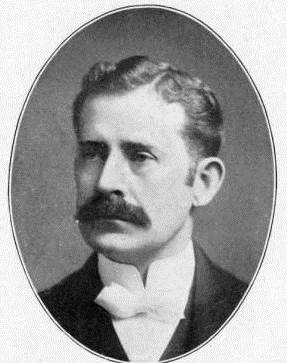
Chattanooga is a city in and the county seat of Hamilton County, Tennessee, United States. It is located along the Tennessee River, and borders Georgia to the south. With a population of 181,099 in 2020, it is Tennessee's fourth-most populous city and one of the two principal cities of East Tennessee, along with Knoxville. It anchors the Chattanooga metropolitan area, Tennessee's fourth-largest metropolitan statistical area, as well as a larger three-state area that includes Southeast Tennessee, Northwest Georgia, and Northeast Alabama.
Zion is a placename in the Hebrew Bible used as a synonym for Jerusalem, and for the Land of Israel.

The University of Tennessee at Chattanooga is a public university in Chattanooga, Tennessee, United States. It was founded in 1886 and is part of the University of Tennessee System.

Nathan Lynn Bachman was a United States Senator from Tennessee from 1933 until his death. He was a member of the Democratic Party.

Tennessee Temple University was a private Christian university in Chattanooga, Tennessee. Temple Baptist Seminary was the university's graduate school of Christian theology, also operating in Chattanooga. The university merged with Piedmont International University in 2015.
Lavern "Lee" Edward Roberson was an American pastor and evangelist. He was the founder of Tennessee Temple University and Temple Baptist Seminary in Chattanooga, Tennessee, and Camp Joy, in Harrison, Tennessee.

Tennessee Wesleyan University (TWU) is a private Methodist university in Athens, Tennessee. It was founded in 1857 and is affiliated with the Holston Conference of the United Methodist Church. It maintains a branch campus in Knoxville, where it offers evening programs in business administration. It also conducts its nursing classes in Knoxville.

Reuben Harrison Hunt, also known as R. H. Hunt, was an American architect who spent most of his life in Chattanooga, Tennessee. He is considered to have been one of the city's most significant early architects. He also designed major public building projects in other states. He was a principal of the R.H. Hunt and Co. firm.
Chamberlain Field was an American football stadium in Chattanooga, Tennessee. It hosted the University of Tennessee at Chattanooga football team until they moved to Finley Stadium in 1997. It officially opened on June 3, 1908, and was named in honor of former University of Chattanooga trustee Hiram S. Chamberlain. When it closed, it was the second oldest on-campus college football stadium after Harvard Stadium.

The following outline is provided as an overview of and topical guide to Tennessee:

Pikeville Chapel African Methodist Episcopal Zion Church is a historic African-American church on E. Valley Drive in Pikeville, Tennessee.
The 1904 Grant football team represented the Chattanooga campus of U.S. Grant Memorial University—now known as the University of Tennessee at Chattanooga—as an independent in the 1904 college football season.
The 1908 Chattanooga Moccasins football team represented the University of Chattanooga—now known as the University of Tennessee at Chattanooga—as an independent in the 1908 college football season.
The 1909 Chattanooga Moccasins football team represented the University of Chattanooga as an independent during the 1909 college football season.
The 1907 Chattanooga Moccasins football team represented the University of Chattanooga—now known as the University of Tennessee at Chattanooga—as an independent during the 1907 college football season. The team finished its six-game schedule without a win, scoring only one touchdown in the entire season. A seventh game was scheduled for Thanksgiving Day, November 28, in Chattanooga against Southwestern Presbyterian of Clarksville, Tennessee. However, the game was cancelled on November 27 because of Chattanooga's poor performance on November 26 against the 12th Cavalry.
The 1919 Chattanooga Moccasins football team represented the University of Chattanooga as an independent during the 1919 college football season. In their first season under head coach Silas Williams, the Moccasins completed its nine-game schedule with a record of 3–5–1.
The 1919 Middle Tennessee State Normal football team represented the Middle Tennessee State Normal School during the 1919 college football season. The team captain was Rupert Smith.
Frank S. Cherry was an American man who was the founder and leader of one of the early Black Hebrew Israelite groups in the United States.
Cameron Chesterfield Alleyne was a Barbados-born American bishop of the African Methodist Episcopal Zion Church (AMEZ). Alleyne studied in the United States and was ordained there. He held appointments as a pastor in churches across the United States, served as a trustee of several educational institutions and edited AMEZ's journal. Alleyne was elected a bishop of the church in 1924, becoming the first AMEZ bishop to be elected by unanimous vote. His first posting was as resident bishop to Africa, during which he made attempts to reform the church's missions and expand its reach. Returning to the US in 1928 he held appointments to two AMEZ districts and as a representative to the Commission of Army and Navy Chaplains during World War II.







